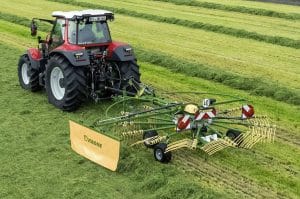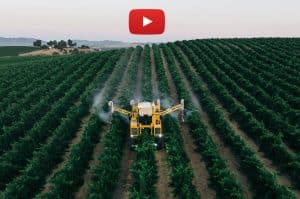Lemken improved details of its precision seed drill Azurit. The latest update, the Lemken Azurit 10, features a number of benefits compared to the previous model. The machine is also capable of drilling soy beans and sunflower seeds and applying micro granules.
Apart from the proven four-, six- and eight-row variants with row spacings of 70 to 80 cm, the new Lemken Azurit also comes with six or twelve rows with a 50-cm row spacing. A furrow former has been added to the seeding coulters to improve the quality of seed placement.
The drill pipe has been updated and now comes with an inlet that can be replaced once worn. From the coming season, the range of applications of the Azurit 10 comprises not only all previous crops, but also soy beans and sunflowers.
Another new feature is automatic seed singling for maize with a system that monitors and adjusts the quality of seed singling. This system can be retrofitted to older machines. A new fertiliser monitoring system in the Azurit 10 automatically alerts the operator if individual fertiliser coulters become blocked.
The closer, the better
Lemken also offers yet another advantage for the Azurit 10 with the MicroHub 5, a spreader unit which allows micro granules to be applied in the direct vicinity of seeds. Micro granules contain water-soluble nutrients, which are rapidly available to plants and therefore generally produce excellent juvenile crop development. This is particularly important in cold, dry spring seasons. The initial nutrient requirements of crops can be easily covered by relatively small amounts of micro granules.
Lemken deliberately shines a spotlight on fertiliser efficiency with the MicroHub 5, as this topic is gaining increased relevance in public discussions. “We offer this option for our Azurit with up to 8 rows,” says Bernd Valtwies, Lemken’s Head of Design for precision seed drill technology. “This unit is not only available for new machines. Depending on the year of manufacture of previous Azurit 9 machines, matching retrofit kits will be available. The system is controlled via the Azurit on-board terminal. The MicroHub holds 200 litres of fertiliser, which can currently be applied at rates ranging from 1 to 40 kilos per hectare. The metering unit is operated electrically and granules are pneumatically delivered to the seed furrow. This is the ultimate in precision,” Valtwies concludes.






